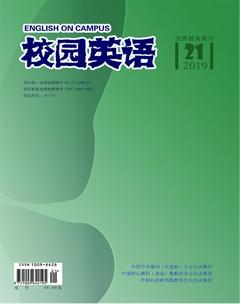2Analysis of the Usage of Domestictio and Foreignization inChinese Poetry Translation
I. Overview of Domestication and Foreignization
In 1995, a famous American translation theorist, Lawrence Venuti, firstly formulated and introduced the translation theory of domesticationand foreignizationin the bookThe Translators Invisibility: a History of Translation. He said “foreignization is an approach that the translator leaves the author in peace, as much as possible, and moves the reader towards him” while domestication is the one that the translator “leaves the reader in peace, as much as possible, and moves the author towards him”. Domestication is a derogative term. Following Venutis theory, Schuttleworth and Cowie made the statement of domestication in their work Dictionary of Translation Studies: “Venuti used the term to describe a transparent and smooth style of translation strategies, of which the fundamental purpose is to minimize the strangeness of the target language readers.”
II. Introduction of Chinese Poetry Translation
The English translation of Chinese ancient poetry has a long history.
2.1 The Present Situation of Chinese Poetry Translation
China is a country of poetry. Chinese classical poetry represents Chinese culture. How to introduce Chinese ancient poetry abroad to relate to Chinese poetry and even the image of China; learning English people to familiarize and read English poetry can broaden the literary field of literature, increase literary knowledge and improve the aesthetic ability, at the same time, it can also improve the interest in English learning and improve the quality of English. Therefore, poetry translation plays a very important role in peoples lives. The existing English versions of ancient Chinese poetry have been translated by foreign translators. Most of the translations foreign translators have been published in 1889-1946 years. The translation of Watson can be regarded as the representative of Contemporary English translation. Most of the translations of translators in China have been published. Nowadays, there are not many translation works at home and abroad, but a good translation is still rare.
2.2 The Difficulties of Chinese Poetry Translation
Firstly, the difficulties can be found in the processing of the image. Image is the core of the whole poem. It is generally believed that it is a language that conveys experience through emotion, which may imply more “inner vision”. It is touching things the poets senses and was created to the true image of art sublimation from real life. Through the novel and perfect images and catchy rhythms, good poetry can reproduce the perfect picture of harmony. Image is an important concept in Chinese literature. Secondly, the difficulties can be found from the aspects of the shape and spirit of the poem.
III The Key Points in the Selection of Poetry Translation Strategies
3.1 Reproducing the Lyric of Poetry
The most difficult and most important thing in poetry is the charm of poetry, and emotion is an important part of this “charm”, and it is the emotion that determines the aesthetic value of poetry. Therefore, it is necessary to translate the most profound poetry works, and translators should do enough in the word “Qing”. However, the translator often receives many factors, and most of these factors are unavoidable. From the object, the text and the author are the important factors that restrict the translator, and the translator, as the subject, also has its own aesthetic ability, emotional experience difference, artistic interest, life experience and so on.
3.2 Reproducing the Rhythm of Poetry
Rhyme is the voice of harmony, which is the common feature of all languages. There are similarities in the rhyme ways of different languages, such as the rhyme of the Chinese and English poetry, two lines, one rhyme, and rhyme, which are common in the two poems, but because different ethnic groups have their different language characteristics, different cultural traditions and different appreciation habits, there are many different points on the rhyme. The rhyme of the Chinese language is divided by four sounds.
Ⅳ. Conclusion
Through the analysis of the different versions of the version of the song of long hate, we can know that, in particular circumstances, for the needs of communication and the mitigation of cultural conflicts, translators of ancient poetry and English translation often use domestication strategies so as to effectively disseminate Chinese culture. In the process of translating classical poetry into English, the translator should choose appropriate translation strategies according to specific circumstances to achieve the purpose of translation so as to faithfully spread Chinese culture.
References:
[1]Lawrence Venuti. The Translators Invisibility[M]. Routledge Press,2015:77-86.
[2]New mark P. Approaches to Translation[M]. Polytechnic of Central London,2013:64-78.
【作者簡介】孫瑩瑩,哈爾濱遠東理工學院。

